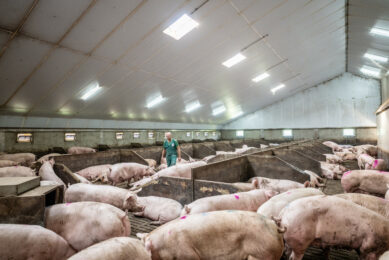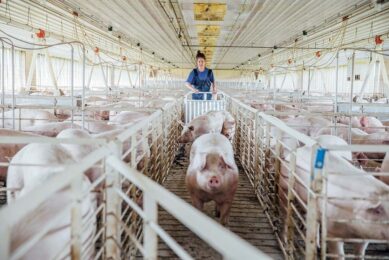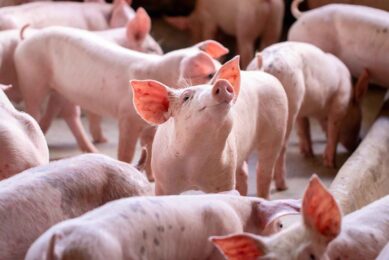One in two Dutch say no to so-called mega livestock complexes
Almost half of the members of the public in the Netherlands says ‘no’ to the construction of so-called ‘mega livestock complexes’ – another 42% is positive.
A public enquiry, carried out by the Dutch ministry of Economic Affairs, Agriculture and Innovation has indicated that a broad majority is not in favour of continuing economies of scale in the livestock industry.An earlier research had yielded identical results.
Deputy minister Henk Bleker (Agriculture) indicated not to know exactly why about half of the Dutch say ‘no’. “This could have many origins. Fear for animal diseases or public health. Perhaps damage to the environment.”
Lack of knowledge could also be an explanation for animal husbandry’s the negative image, Bleker said.
Today, a broad discussion about mega livestock complexes has been started with a press conference of agricultural deputy minister Henk Bleker.
Members of the public can also put in their views at this website (in Dutch).
Defininition
Remarkably, it is difficult to explain what is considered to be ‘mega livestock complexes’ in the Dutch context. A country in which animal husbandry was performed predominantly in family operations, the Netherlands have been going through a phase of intensification and professionalisation as a result of European Union initiatives and various legislative adjustments after Foot-and-Mouth Disease and Classical Swine Fever outbreaks in the late nineties.
One definition given is having one location with at least 7,500 finishers, 250 dairy cows or 120,000 layers. Rather large for a densely populated country as the Netherlands, but fairly moderate in comparison to farm sites in e.g. the USA or China.
Animal welfare
Animal welfare organisations in the Netherlands have been calling for a national ban on mega livestock complexes and for more sustainability in animal husbandry.
The organisations say that keeping large amounts of animals on a relatively small surface will produce a manure supply that will afface air and water quality, as well as the environment. They also denounce the idea that animals stay indoors for their whole life, and emphasise that a high livestock density will increase the risk for humans to catch animal diseases.











